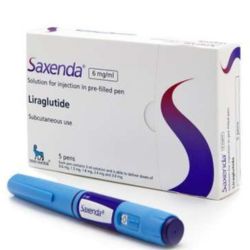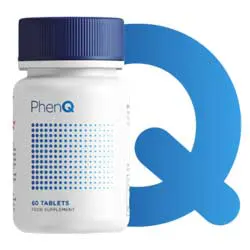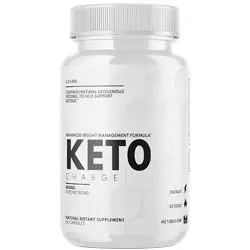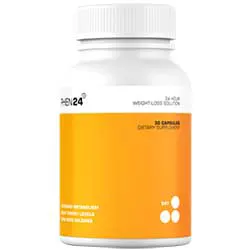Overview
Liraglutide (Saxenda), a glucagon-like peptide-1 (GLP-1) receptor agonist, delays stomach emptying and boosts satiety after meals in addition to boosting insulin release and blocking glucagon secretion. It is marketed as a supplement to diet and exercise for managing weight in adults who are overweight or obese. It is the same medication that is used to treat type 2 diabetes mellitus but at a larger dosage.
What is Liraglutide?
A hormone called glucagon-like peptide-1 (GLP-1) is naturally produced by the body, and liraglutide is a synthetic form of this hormone. By encouraging the release of insulin, lowering the amount of glucose being produced in the liver, and delaying stomach emptying, it replicates the effects of GLP-1. These activities support weight loss and help control blood sugar levels.

Liraglutide
How Does it Work?
Liraglutide increases insulin production by activating GLP-1 receptors in the pancreas when it is administered. Blood sugar levels are lowered as a result of insulin’s role in the transfer of glucose from the bloodstream into cells. Liraglutide also reduces the hormone glucagon secretion, which raises blood sugar levels. Liraglutide promotes a more stable glucose metabolism by suppressing glucagon. The medication also delays stomach emptying, prolonging the feeling of fullness and decreasing appetite.
Ingredients
The medication’s active component, liraglutide, is a synthetic version of the hormone glucagon-like peptide-1 (GLP-1), which is found in nature. The intestines generate GLP-1, which is essential for controlling blood sugar levels and hunger.
Recombinant DNA technology is utilised in the production of liraglutide. To develop a protein that resembles GLP-1, scientists genetically engineered bacteria. Liraglutide, a more stable and persistent version of GLP-1, is made by further purifying and altering this protein.
For subcutaneous injection, liraglutide is commonly provided as a solution in pre-filled pens or syringes. Liraglutide is the active pharmaceutical element in the mixture, along with stabilisers, buffers, and preservatives, which help to maintain the stability and efficiency of the medication.[1]
Pros and Cons Of Liraglutide
Pros
- Effective in controlling type 2 diabetes’ blood sugar levels.
- Encourages weight loss in those who are obese.
- Injection given once day for convenience.
- May help certain people’ cardiovascular health.
Cons
- The gastrointestinal adverse effects of liraglutide include nausea and diarrhoea.
- It is given through subcutaneous injections, which some people could find uncomfortable.
- Liraglutide’s price ranges from moderate to expensive.
Side Effects of Liraglutide
Liraglutide is often tolerated well, however it could have certain negative effects. Constipation, diarrhoea, vomiting, and nausea are typical adverse effects. As the body becomes accustomed to the medicine, these symptoms typically get better with time. Pancreatitis and thyroid tumours are rare but potentially significant adverse effects, however the likelihood is low. Any worries or possible adverse effects should be brought up with your healthcare professional.
Advertisement
*All individuals are unique. Your results can and will vary.
Customer Review
For the past six months, I’ve been using Liraglutide to control my type 2 diabetes, and I’m really happy with the outcomes. I’ve been able to lose a considerable amount of weight while also improving my ability to control my blood sugar levels.
~ Hazel
The injections are simple to administer, and there haven’t been many negative effects. Anyone who is having difficulty managing their diabetes and weight should take Liraglutide, in my opinion.
~ Nathan
FAQ’s
Q:How long does it take for Liraglutide to start working?
A: Within a few days of beginning the course of treatment, liraglutide can start to reduce blood sugar levels. It could take a few weeks for the full effects of weight loss to manifest.
Q:Can Liraglutide be used by individuals with type 1 diabetes?
A: Liraglutide is only permitted for usage in people with type 2 diabetes. For people with type 1 diabetes, it is not suggested.
Q:How should Liraglutide be stored?
A: Between 36°F and 46°F (2°C and 8°C), the refrigerator is the ideal place to keep liraglutide. You shouldn’t freeze it. Once opened, it can be stored for up to 30 days at room temperature (86°F or 30°C).
Conclusion
A clinically meaningful and long-lasting weight loss that lasts as long as the medication is taken is achieved when liraglutide is administered in conjunction with lifestyle counselling. However, nausea and vomiting are frequent side effects, and roughly one in ten patients will stop their medication. The impact of liraglutide on patient-focused outcomes like the onset of osteoarthritis, the prevention of cardiovascular disease, and the decline in mortality has not been investigated.
Advertisement
*All individuals are unique. Your results can and will vary.

















Editor Rating
Write a Review
Hints on how to write a helpful review
A great review should have the following qualities:
We have high level of professional editorial section with zero tolerance policy on fake reviews.
To maintain the genuineness of our brand, we ensure all customer reviews submitted to us are verified and confirmed before publishing. Though we might not be a 100% accurate, however, we try our best to ensure being next to best. For a thorough verification of submitted reviews, we spend close to 7 working days before allowing any customer review to be published since we also work on the earliest submissions first.